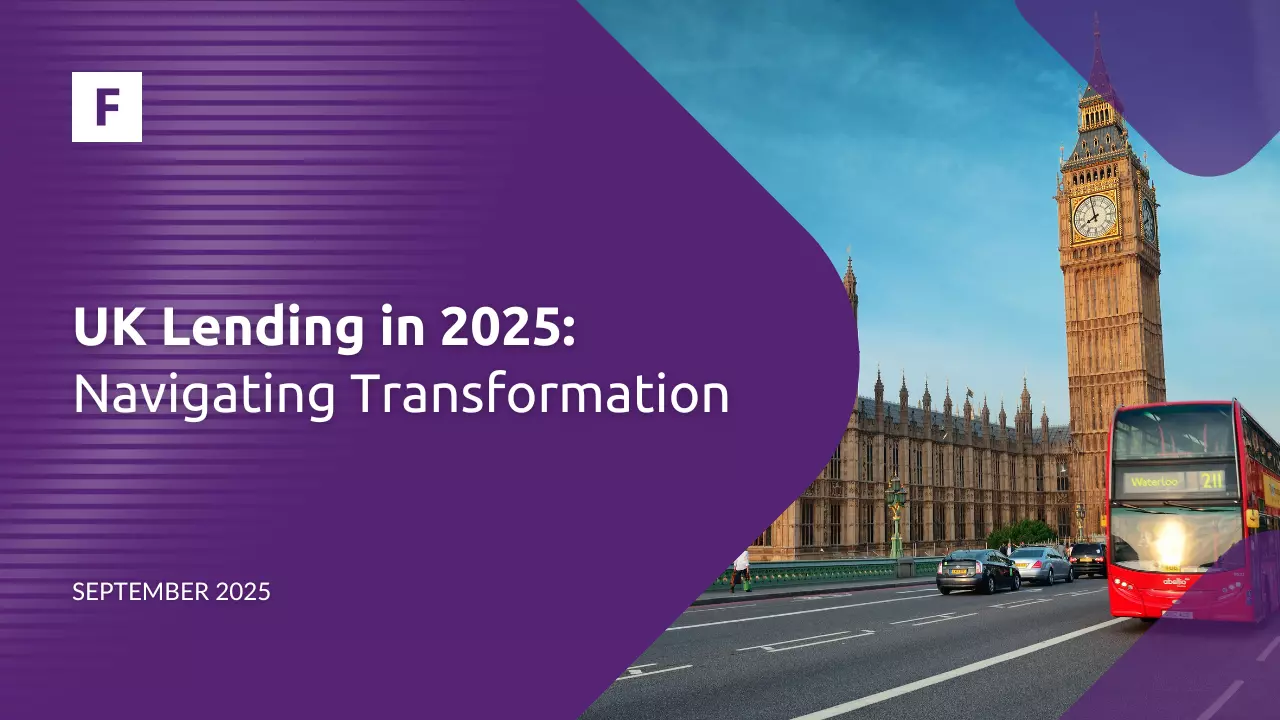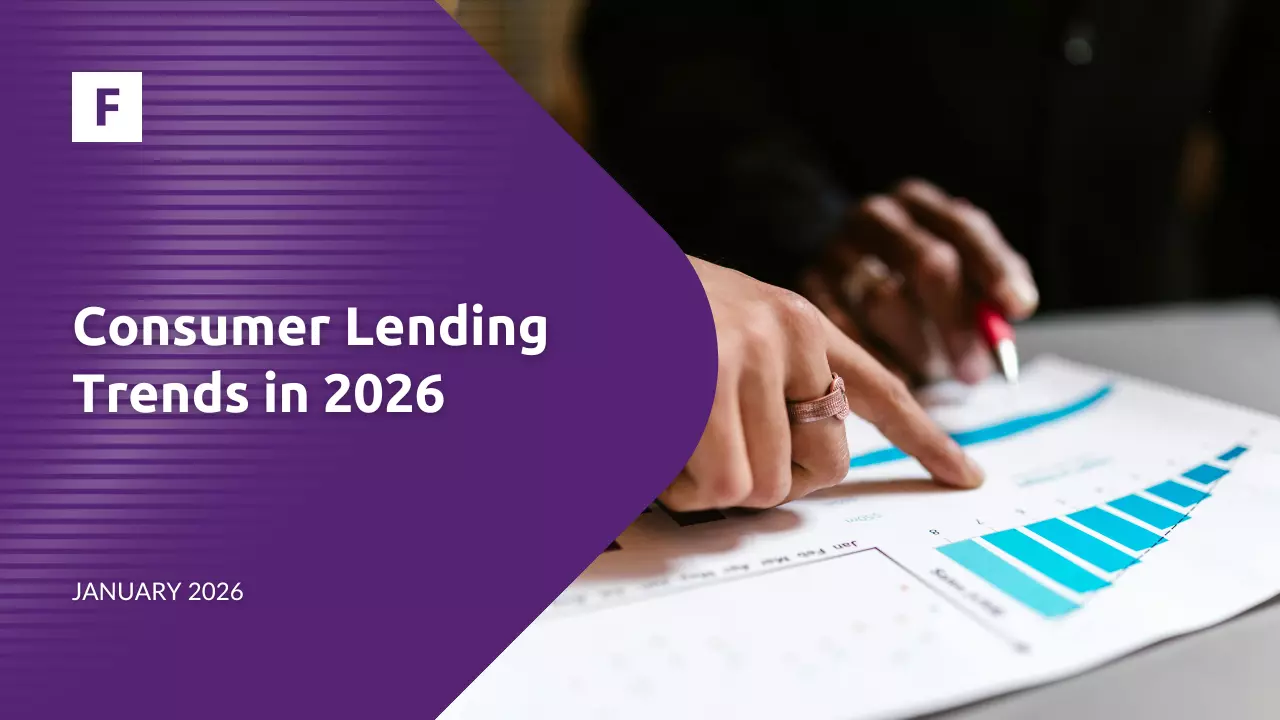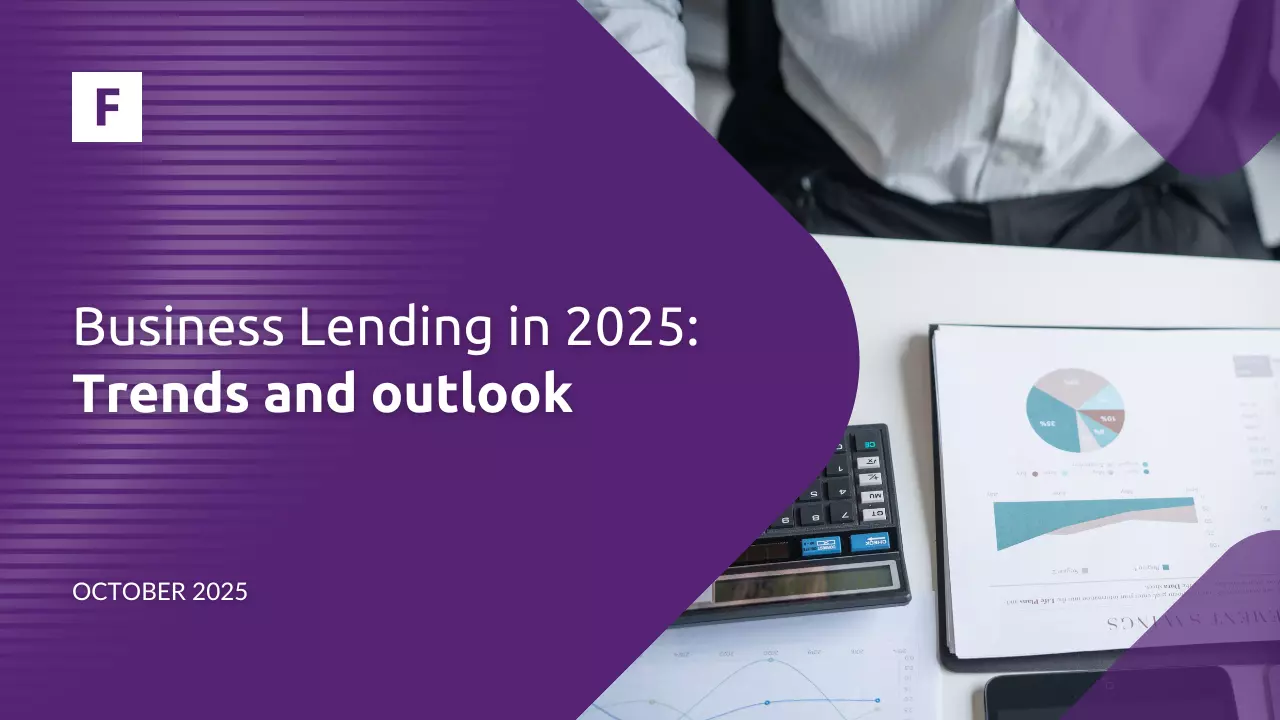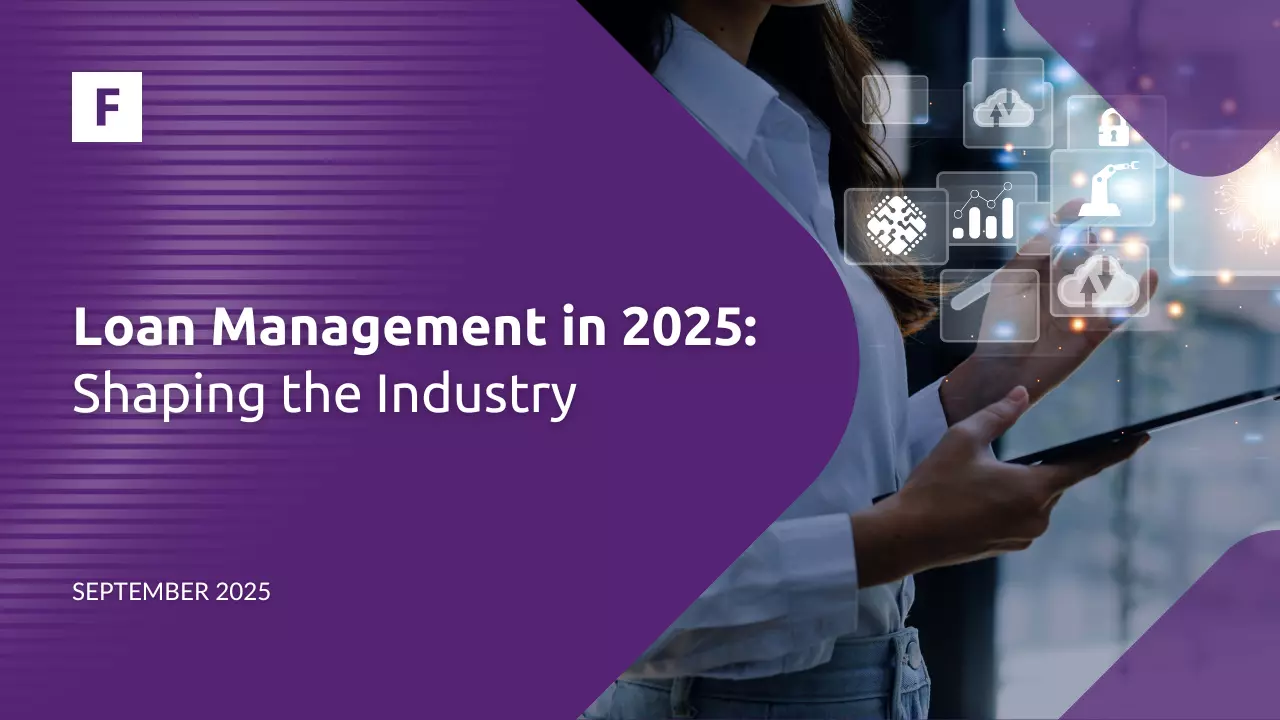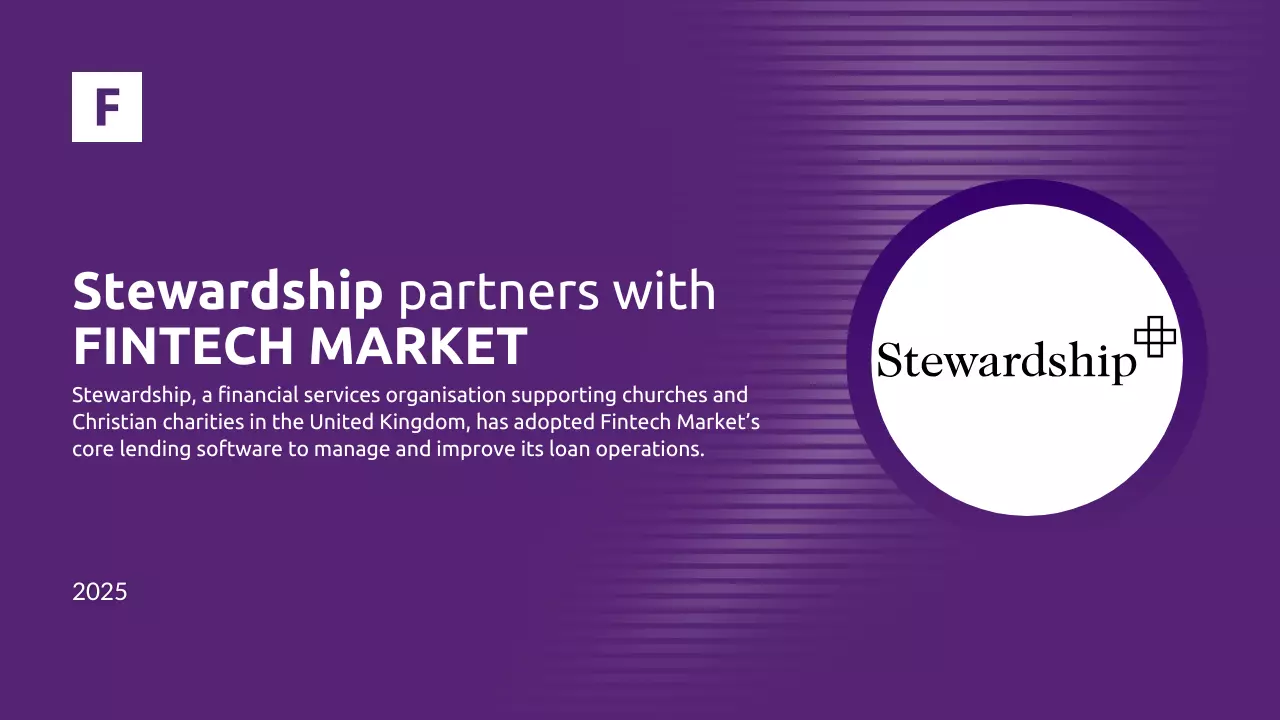Lending in the UK often presents challenges, including lengthy application processes, limited access to borrower data, and the constant need to stay aligned with FCA compliance. These hurdles slow down approvals, increase operational risks, and complicate loan management for lenders.
Fintech Market's lending software is designed to simplify this process, helping UK lenders streamline applications, access reliable credit data, and ensure compliance with ease.
These are the main key takeaways from this article:
Market trends shape lending
Automation drives approvals
Compliance protects growth
Leadership enables adaptability
Taking a Look at the UK's Financial Situation
The UK remained Europe's top destination for financial services foreign direct investment (FDI) in 2024, attracting 73 projects --- "more than double second-placed Germany," which secured 32, and ahead of France with 30. While this represented a 32% decline from 2023, the UK still accounted for a quarter of all European financial services projects, although down from 33% the previous year. Across Europe, financial services FDI decreased by 11% year-over-year, from 329 projects in 2023 to 293 in 2024.
EY's UK and Ireland financial service leader Martina Keane noted: "The UK has retained its position as Europe's most attractive destination for financial services investment... But competition is fierce, and while the UK industry is a clear leader, we cannot ignore the fact that investment levels have declined over the last year."
Similarly, EY's global financial services leader Omar Ali highlighted that "global investors are undoubtedly still committed to Europe's deep capital markets and highly skilled workforce," though warned that uncertainty and competition from financial centres outside Europe remain significant challenges.
Investor sentiment, however, remains optimistic: 86% believe the UK will "retain or improve its level of financial services attractiveness over the next three years," with London seen as Europe's most attractive city for investment. Yet New York, Paris, Frankfurt, Singapore, and Hong Kong are cited as London's biggest global rivals.
The Situation of the UK Market in 2025
The latest Mortgage Lenders and Administrators Return (MLAR) shows that the outstanding value of residential mortgage loans rose by 0.3% in the quarter to £1,703.6 billion, 2.6% higher than a year earlier.
Gross mortgage advances fell sharply by 24.2% to £58.8 billion, their lowest since early 2024, while new mortgage commitments increased by 14.6% to £78.2 billion, the highest since 2022.
Mortgage interest rate margins shifted, with fewer loans priced within 2% of the Bank Rate and more in higher bands, primarily driven by a 25-basis-point cut in the Bank Rate rather than changes in mortgage pricing.
High loan-to-value lending rose to its highest level since 2008, with over 95% LTV loans reaching their most substantial share since 2012. Meanwhile, high loan-to-income lending saw its most significant decline since 2023.
Lending for house purchase fell to its lowest share since 2024, with both first-time buyers and home movers decreasing, while remortgaging rose to its highest since early 2024, and buy-to-let lending reached its highest in over a year.
Arrears continued to ease, with new arrears cases at their lowest level since 2022. The total value of balances in arrears fell to £20.9 billion, including a decline in non-regulated mortgages, which kept the overall share of mortgages in arrears steady at 1.2%.
Interest Rates and Their Impact
The Bank of England's cautious stance on monetary policy is another factor shaping the lending landscape. Economists expect the base rate to remain at 4% until at least early 2026, following a cut from 4.25% in August. As RSM UK's chief economist Thomas Pugh noted, "It's all but guaranteed that the Bank of England will hold interest rates at 4%," reflecting ongoing concerns about balancing inflation and a weakening labour market.
This decision is significant for mortgage holders, with millions expected to refinance onto higher rates in the years to come. The elevated rate environment helps explain why remortgaging reached its highest share since early 2024, while lending for house purchases has fallen to its lowest share since 2024.
For lenders, higher-for-longer rates underline the importance of streamlined processes and efficient loan management systems to protect margins and better support customers navigating more expensive borrowing conditions.
Fintech Outlook in the UK
UK fintech investment reached $7.2 billion in H1 2025, a slight 5% decline from $7.6 billion a year earlier, according to KPMG's Pulse of Fintech report. The number of UK M&A, PE, and VC deals rose to 216, up from 198 in H1 2024, though activity slowed in the second quarter. Despite the dip, the UK remained the centre of European fintech investment, attracting more funding than the rest of Europe, the Middle East and Africa combined.
The half-year total was buoyed by large transactions, including BlackRock's $3.1 billion acquisition of Preqin, Rapyd's $500 million raise, and FNZ's $500 million funding round.
Globally, fintech investment was more subdued, with just $44.7 billion across 2,216 deals -- the weakest half-year since 2020 -- although EMEA stood out as the only region to record growth, rising from $11.1 billion in H2 2024 to $13.7 billion in H1 2025.
Commenting on the results, Hannah Dobson, Partner and UK Head of Fintech at KPMG UK, said: "Although UK fintech investment experienced a slight decline in the first half of the year compared to 2024, it is encouraging to observe the continued resilience of the UK fintech sector despite the challenging macroeconomic environment." She highlighted AI and digital assets as key areas of growth.
Trends to Keep an Eye On
As the UK FinTech sector continues to evolve at a rapid pace, Odgers Berndtson's Global FinTech Practice highlights how shifts in regulation, technological convergence, and fast growth are reshaping leadership hiring in the UK FinTech sector, after a surge in 2024, when job vacancies rose 61% year-on-year, hiring in 2025 and beyond is expected to prioritise leaders who can navigate the blurring lines between traditional finance, decentralised finance, and technology.
Five leadership trends stand out. First, demand is growing for "bridge builders" who can connect digital and traditional finance, particularly in areas such as blockchain, CBDCs, and digital assets, with strong skills in compliance, risk management, and product development.
Second, firms are seeking specialists in AI-driven hyper-personalisation, requiring expertise in cloud computing, data scalability, and AI infrastructure.
Third, the rise of digital payments and DeFi is fuelling demand for cybersecurity leaders with advanced skills in digital identity verification and fraud detection.
Fourth, there is a focus on regulatory adaptability, as new rules on cryptoassets, BNPL, open finance, and payments protection tighten compliance requirements.
Ultimately, leadership agility and the ability to thrive in uncertain, rapidly evolving conditions will be crucial in guiding UK FinTech firms through ongoing transformation.
Our Solution
As the UK lending market faces higher interest rates for the long term, stricter compliance requirements, and shifting borrower behavior in 2025, financial institutions need technology that can simplify operations and support more thoughtful decision-making.
Fintech Market provides a comprehensive loan management system that enables lenders to automate the loan lifecycle, enhance risk management, and deliver an exceptional customer experience. With solutions spanning nine loan types, our lending software addresses the full spectrum of modern lending needs.
Consumer Loans
Consumer lending in 2025 requires speed, precision, and accessibility. FTM's Consumer Lending System leverages advanced loan origination software and credit decisioning software to streamline approvals for underserved customers. Real-time risk monitoring, automated repayments, and customizable loan products make digital lending faster, safer, and more inclusive, enabling lenders to maintain efficient portfolios while navigating regulatory pressures.
SME Lending
For SMEs, access to credit must be simple yet secure. Our SME Lending System combines lending software with a Decision Engine, automating credit assessments and real-time portfolio monitoring. This loan management system enables institutions to approve loans more efficiently, minimize operational risk, and provide a seamless borrower experience, thereby meeting the challenges of the 2025 UK lending environment.
Credit Line
Offering revolving credit requires accuracy and speed. FTM's Credit Line Software integrates credit decisioning software and an intelligent Decision Engine to evaluate borrower risk instantly, automate approvals, and reduce defaults. This digital lending solution enables lenders to optimize credit offerings while maintaining compliance, making the management of credit lines both efficient and secure.
Purchase Financing
In 2025, flexible lending options like BNPL and installment financing are growing. Our Purchase Financing Software uses loan origination software to automate credit limit checks, approvals, and repayments. By combining digital lending tools with seamless system integrations, lenders can offer customizable purchase financing that improves user experience while ensuring operational efficiency and compliance.
Car Leasing
High-value lending, such as car leases, requires detailed risk management and compliance. FTM's Car Lease Software, powered by lending software and a Decision Engine, automates contract creation, fleet tracking, and risk-based offers. This loan management system supports KYC verification and regulatory compliance, enabling leasing companies to operate more efficiently and accurately in the evolving 2025 market.
Deposit Software
Deposit management is central to modern financial institutions. Deposit Software uses digital lending and loan management system features to automate reporting, track real-time balances, and provide personalized interest rates. By integrating with third-party tools, it ensures compliant, secure, and customer-centric operations, helping banks maintain efficiency amid regulatory scrutiny.
E-Wallet Software
E-wallets are increasingly crucial for digital lending transactions. Our E-Wallet Software integrates loan origination software and lending software to facilitate fast, secure loan disbursements and repayments. Real-time transaction monitoring, multi-currency support, and compliance tools make this platform ideal for lenders navigating the 2025 UK market.
Factoring Software
Factoring Software allows lenders and businesses to access instant liquidity while managing risk. Leveraging a loan management system, credit decisioning software, and a Decision Engine, the platform automates invoice processing, rent factoring, and cash flow management. This ensures accurate approvals, faster operations, and better portfolio oversight in a challenging lending environment.
Mortgage
Mortgage lending in 2025 requires precision and efficiency. Mortgage Software utilizes loan origination software and digital lending tools to manage personalized mortgage offers, automate underwriting, and perform credit scoring. The integrated Decision Engine enables fast, compliant credit decisions while maintaining portfolio health, helping lenders adapt to high interest rates and shifting borrower behavior.
Recap
The UK lending market faces rising pressures from high interest rates, shifting mortgage activity, and stricter compliance demands. These challenges require faster, more efficient loan management and more intelligent credit decision-making.
